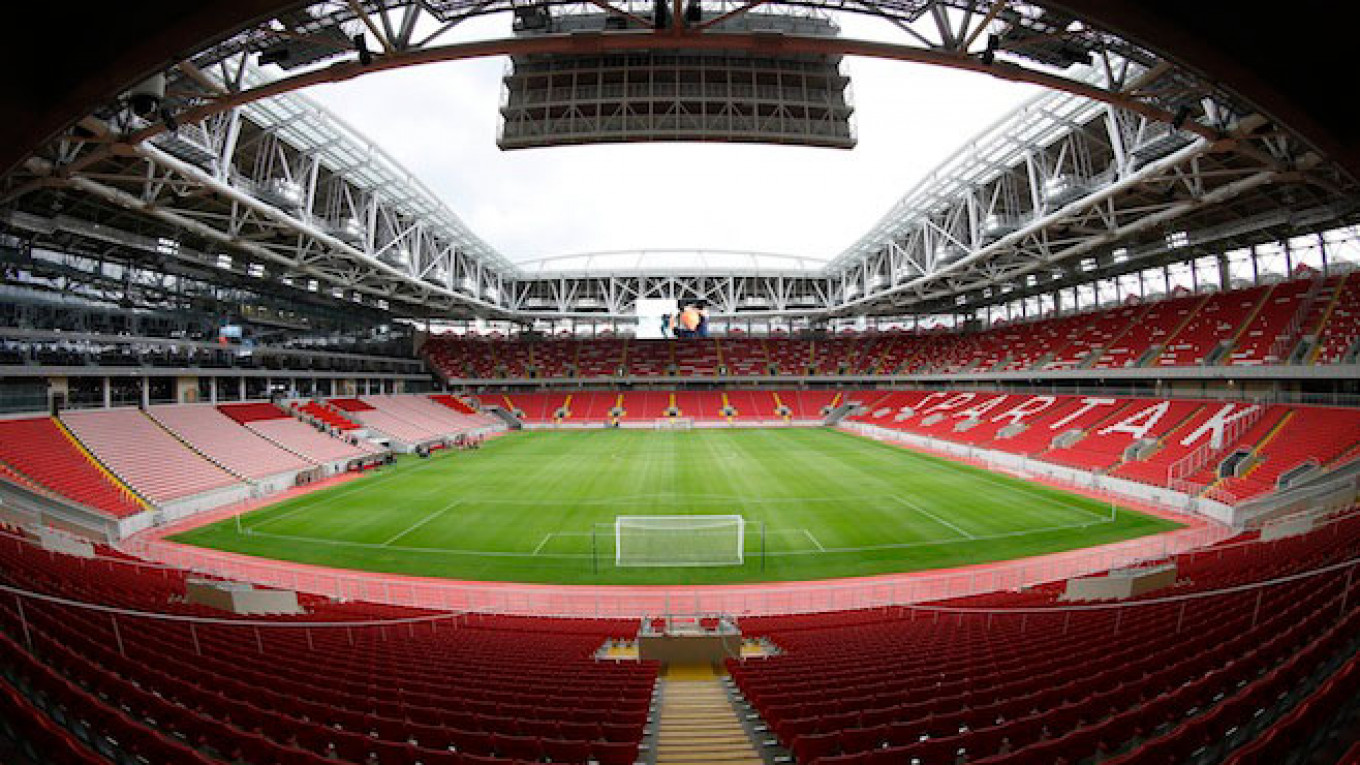Prime Minister Dmitry Medvedev on Monday ordered that five stadiums being built for the 2018 World Cup utilize only Russian materials where possible.
The move comes as Russia seeks to boost local production amid tit-for-tat economic sanctions with the West over Ukraine and a sharp rise in the cost of imports due to ruble devaluation.
The order, posted Monday on the government's website, applies to football stadiums under construction in the regional cities of Samara, Saransk, Volgograd, Nizhny Novgorod and Rostov-on-Don. Each of the stadiums is meant to seat 45,000 and has a minimum federal budget of 10 billion rubles ($189 million).
According to an explanatory document accompanying the order, the ruling seeks the "replacement of equipment and materials of foreign production with Russian analogues."
The cost of imports has skyrocketed due to the weakness of the ruble, which has lost one-third of its value against the U.S. dollar since last summer due to falling oil prices and sanctions over Moscow's backing of separatists in Ukraine.
It was not immediately clear which stadium components could be swapped for domestic products and how much money the measure would save.
Mordovian Minister Alexei Merkushkin, who is responsible for construction of Saransk's stadium, said foreign lighting fixtures, cables and electronics could all be replaced with Russian-made equivalents, news agency R-Sport reported Monday.
Sports Minister Vitaly Mutko said in January that Russia's economic crisis meant that World Cup preparations were facing a budget deficit for 2015, Reuters reported. Stadium construction for the event was estimated last March at 172.6 billion rubles ($3.2 billion).
A total of 12 stadiums will be built or reconstructed for the 2018 World Cup, with two stadiums in Moscow and the rest spread across Russia's regions.
A Message from The Moscow Times:
Dear readers,
We are facing unprecedented challenges. Russia's Prosecutor General's Office has designated The Moscow Times as an "undesirable" organization, criminalizing our work and putting our staff at risk of prosecution. This follows our earlier unjust labeling as a "foreign agent."
These actions are direct attempts to silence independent journalism in Russia. The authorities claim our work "discredits the decisions of the Russian leadership." We see things differently: we strive to provide accurate, unbiased reporting on Russia.
We, the journalists of The Moscow Times, refuse to be silenced. But to continue our work, we need your help.
Your support, no matter how small, makes a world of difference. If you can, please support us monthly starting from just $2. It's quick to set up, and every contribution makes a significant impact.
By supporting The Moscow Times, you're defending open, independent journalism in the face of repression. Thank you for standing with us.
Remind me later.






